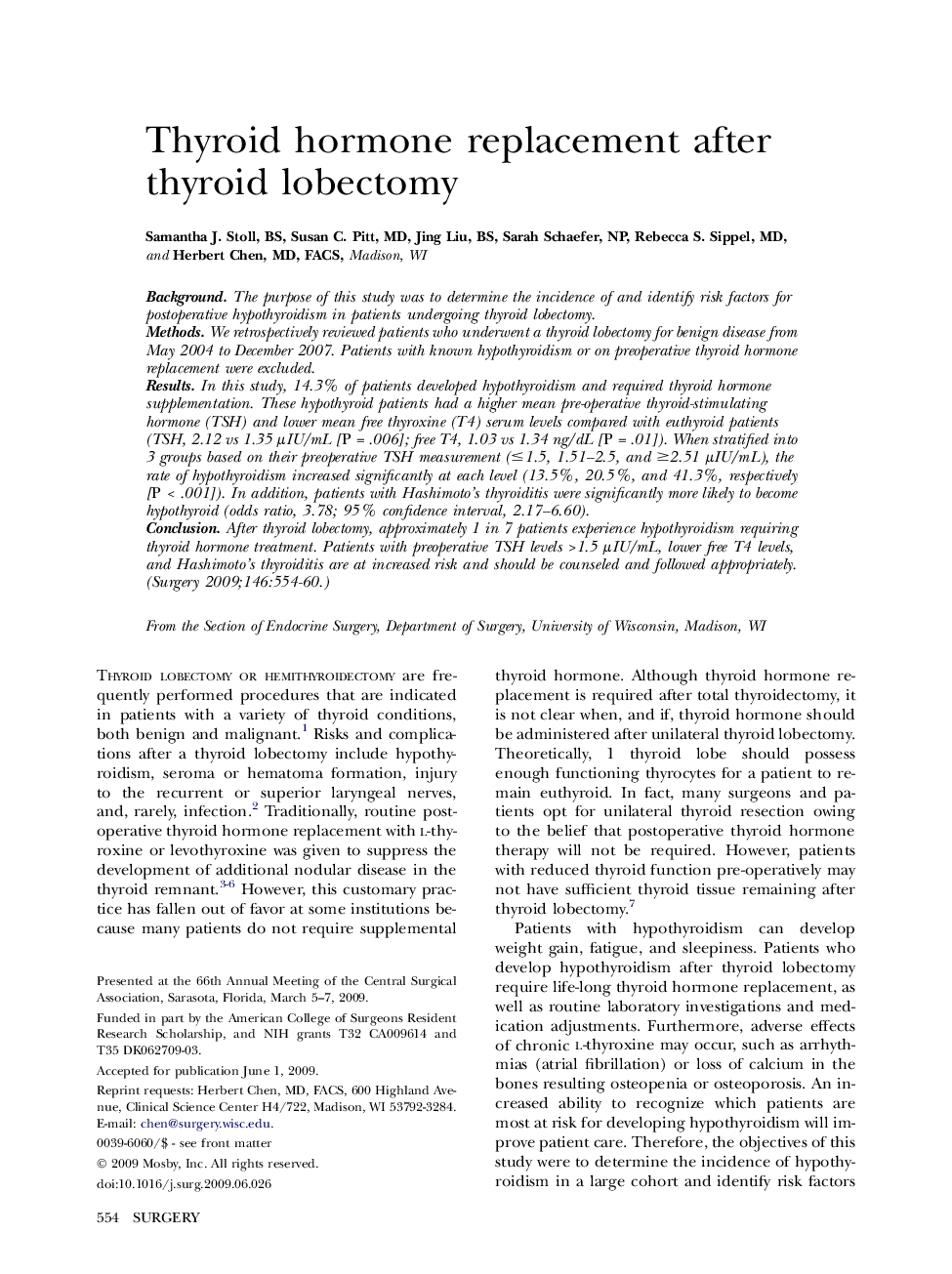| Article ID | Journal | Published Year | Pages | File Type |
|---|---|---|---|---|
| 4309235 | Surgery | 2009 | 7 Pages |
BackgroundThe purpose of this study was to determine the incidence of and identify risk factors for postoperative hypothyroidism in patients undergoing thyroid lobectomy.MethodsWe retrospectively reviewed patients who underwent a thyroid lobectomy for benign disease from May 2004 to December 2007. Patients with known hypothyroidism or on preoperative thyroid hormone replacement were excluded.ResultsIn this study, 14.3% of patients developed hypothyroidism and required thyroid hormone supplementation. These hypothyroid patients had a higher mean pre-operative thyroid-stimulating hormone (TSH) and lower mean free thyroxine (T4) serum levels compared with euthyroid patients (TSH, 2.12 vs 1.35 μIU/mL [P = .006]; free T4, 1.03 vs 1.34 ng/dL [P = .01]). When stratified into 3 groups based on their preoperative TSH measurement (≤1.5, 1.51–2.5, and ≥2.51 μIU/mL), the rate of hypothyroidism increased significantly at each level (13.5%, 20.5%, and 41.3%, respectively [P < .001]). In addition, patients with Hashimoto's thyroiditis were significantly more likely to become hypothyroid (odds ratio, 3.78; 95% confidence interval, 2.17–6.60).ConclusionAfter thyroid lobectomy, approximately 1 in 7 patients experience hypothyroidism requiring thyroid hormone treatment. Patients with preoperative TSH levels >1.5 μIU/mL, lower free T4 levels, and Hashimoto's thyroiditis are at increased risk and should be counseled and followed appropriately.
